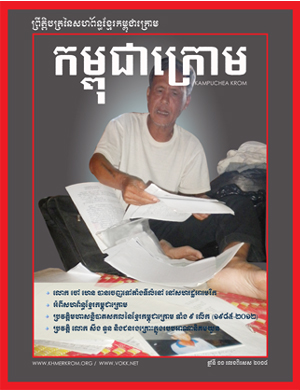They remained legal and effective for another twenty years until Congress passed the Fair Housing Act in 1968. Tel. In 1971, Congress passed the Federal Elections Campaign Act (FECA), legislation aimed at increasing public disclosures of campaign contributions and electoral transparency. By passing the reforms, Congress sought to weed out corruption. Corrigan v. Buckley St. 3925, 3931, 3932) were 'drawn in question' by them (paragraph 6). 7. Court of Appeals for Veterans Claims Nebraska An agreement was made in 1921 by 30 white homeowners that none among them would sell, rent, or allow black people to obtain their land by any means. Third Circuit [4] The population shift showed the extreme effect that one black could have on a neighborhood that was almost completely inhabited by whites. This means that campaign expenditure caps significantly reduce discussion and debate between members of the public. Buckley stopped Helen Curtis from moving into No. 4 Kent's Commentaries 131. The covenants were not a federally-mandated form of segregation, and the decision in Corrigan v. Buckley seemed to take a few steps back in the progress concerning black civil rights in the United States. Citizens United v. Federal Election Commission, Limited individual or group contributions to political candidates to $1,000; contributions by a, Limited individual or group expenditures to $1,000 per candidate per election. When the stately, turn-of-the 20th century rowhouse at 1727 S Street NW in Dupont Circle was sold to an African American couple in violation of a racial covenant that restricted its sale to whites, the house and everyone involved were thrust into a legal battle. This site is protected by reCAPTCHA and the Google. Both had potential First Amendment implications because they impacted political expression and association. Several decades later, the Court cited Buckley v. Valeo in another landmark campaign finance decision, Citizens United v. Federal Election Commission. P. 331. The Court added that expenditures did not have the same appearance of impropriety that donating large sums of money to a campaign did. South Carolina . This is a suit in equity brought by John J. Buckley in the Supreme Court of the District of Columbia against Irene H. Corrigan and Helen Curits, to enjoin the conveyance of certain real estate from one to the other of the defendants. Required political committees to file quarterly reports with the Federal Election Commission, disclosing the sources of every contribution over $100. Court of Federal Claims Civil Rights Cases, 109 U.S. 3, 11. The District Supreme Court sided with Buckley and stated that legal segregation happened all around DC and was a legal practice. Div. Arkansas 835). The Supreme Courts decision on Corrigan v. Buckley is one of landmark Supreme Court cases, and for good reason. P. 271 U. S. 329. You can explore additional available newsletters here. The court ruled that covenants were unenforceable by the government. ThoughtCo, Feb. 17, 2021, thoughtco.com/buckley-v-valeo-4777711. Appeal from a decree of the court of appeals of the District of Columbia, which affirmed a decree of the Supreme Court of the District in favor of Buckley in a suit to enjoin the defendant Corrigan from selling a lot. This Court has no jurisdiction of an appeal from the court of appeals of the District of Columbia founded on alleged constitutional questions so unsubstantial as to be plainly without color of merit and frivolous. P. 331. Stats., are private lot owners prohibited from entering into twenty-one year mutual covenants not to sell to any person of negro blood or race. Div. Justice Sanford delivered the decision: "in the absence of any substantial constitutional or statutory question giving us jurisdiction of this appeal under the provisions of section 250 of the Judicial Code, we cannot determine upon the merits the contentions earnestly pressed by the defendants in this court that the indenture is not only void because contrary to public policy, but is also of such a discriminatory character that a court of equity will not lend its aid by enforcing the specific performance of the covenant. CORRIGAN ET AL. Under the pleadings in the present case, the only constitutional question involved was that arising under the. This was affirmed, on appeal, by the Court of Appeals of the District. Casetext, Inc. and Casetext are not a law firm and do not provide legal advice. 550; Zucht v. King, 260 U. S. 174, 176, 43 S. Ct. 24, 67 L. Ed. De Peyster v. Michael, 6 N.Y. 497; Potter v. Couch, 141 U.S. 296; Manierre v. Welling, 32 R.I. 104; Mandlebaum v. McDonell, 29 Mich. 79; In re Rosher, L.R. Mr. James S. Easby-Smith, with whom Messrs. David A. Pine and Francis W. Hill, Jr., were on the brief, for appellee. In 1921, thirty white persons, including the plaintiff and the defendant Corrigan, owning twenty-five parcels of land, improved by dwelling houses, situated on S Street, between 18th and New Hampshire Avenue, in the City of Washington, executed an indenture, duly recorded, in which they recited that for their mutual benefit and the best interests of the neighborhood comprising these properties, they mutually covenanted and agreed that no part of these properties should ever be used or occupied by, or sold, leased or given to, any person of the negro race or blood; and that this covenant should run with the land and bind their respective heirs and assigns for twenty-one years from and after its date. The bill alleged that this would cause irreparable injury to the plaintiff and the other parties to the indenture, and that the plaintiff, having no adequate remedy at law, was entitled to have the covenant of the defendant Corrigan specifically enforced in equity by an injunction preventing the defendants from carrying the contract of sale into effect; and prayed, in substance, that the defendant Corrigan be enjoined during twenty-one years from the date of the indenture, from conveying the lot to the defendant Curtis, and that the defendant Curtis be enjoined from taking title to the lot during such period, and from using or occupying it. 186; Smith v. Clark, 10 Md. Mississippi We use cookies to improve security, personalize the user experience, enhance our marketing activities (including cooperating with our marketing partners) and for other business use. In Corrigan v. Buckley, 55 App. The Court determined that the appellants had presented no such claims and hence dismissed the appeal for want of jurisdiction. In reaching that conclusion, the Court concluded that both the Fifth and Fourteenth Amendments limited only the action of the government, not private parties, and that the Thirteenth Amendment, which prohibited slavery and involuntary servitude, had no application to the sale of real estate. It results that, in the absence of any substantial constitutional or statutory question giving us jurisdiction of this appeal under the provisions of 250 of the Judicial Code, we cannot determine upon the merits the contentions earnestly pressed by the defendants in this court that the indenture is not only void because contrary to public policy, but is also of such a discriminatory character that a court of equity will not lend its aid by enforcing the specific performance of the covenant. 3. Assuming that this contention drew in question the "construction" of these statutes, as distinguished from their "application," it is obvious, upon their face, that while they provide, inter alia, that all persons and citizens shall have equal right with white citizens to make contracts and acquire property, they, like the Constitutional Amendment under whose sanction they were enacted, do not in any manner prohibit or invalidate contracts entered into by private individuals in respect to the control and disposition of their own property. in Civil Rights Cases, 109 U. S. 3, 11, 3 S. Ct. 18, 21 (27 L. Ed. The defendant Curtis demanded that this contract of sale be carried out, and, despite the protest of other parties to the indenture, the defendant Corrigan had stated that she would convey the lot to the defendant Curtis. And the defendant Curtis moved to dismiss the bill on the ground that it appears therein that the indenture or cevenant 'is void, in that it attempts to deprive the defendant, the said Helen Curtis, and others of property, without due process of law; abridges the privilege and immunities of citizens of the United States, including the defendant Helen Curtis, and other persons within this jurisdiction (and denies them) the equal protection of the law, and therefore, is forbidden by the Constitution of the United States, and especially by the Fifth, Thirteenth, and Fourteenth Amendments thereof, and the Laws enacted is aid and under the sanction of the said Thirteenth and Fourteenth Amendments.'. "Buckley v. Valeo: Supreme Court Case, Arguments, Impact." Iowa This appeal was allowed, in June, 1924. 1. In Corrigan v. Buckley, 271 U.S. 323, the question was whether the courts of the District of Columbia might enjoin prospective breaches of racially restrictive covenants. Chief Justice Burger opined that the contribution caps are just as unconstitutional as expenditures limits. P. 329. Judicial Center In 1921, thirty white persons, including the plaintiff and the defendant Corrigan, owning twenty-five parcels of land, improved by dwelling houses, situated on Street, between 18th and New Hampshire avenue, in the City of Washington, executed an indenture, duly recorded, in which they recited that for their mutual benefit and the best interests of the neighborhood comprising these properties, they mutually covenanted and agreed that no part of these properties should ever be used or occupied by, or sold, leased or given to, any person of the negro race or blood; and that this covenant should run with the land and bind their respective heirs and assigns for twenty-one years from and after its date. APPEAL from a decree of the Court of Appeals of the District of Columbia, which affirmed a decree of the Supreme Court of the District in favor of Buckley in a suit to enjoin the defendant Corrigan from selling a lot. Justice Edward T. Sanford disposed of the constitutional argument raised against the covenant by noting that the Fifth Amendment limited the federal government, not individuals; the Thirteenth Amendment, in matters other than personal liberty, did not protect the individual rights of blacks; and the Fourteenth Amendment referred to state action, not the conduct of private individuals. This is a suit in equity brought by John J. Buckley in the Supreme Court of the District of Columbia against Irene H. Corrigan and Helen Curtis, to enjoin the conveyance of certain real estate from one to the other of the defendants. And, under well settled rules, jurisdiction is wanting if such questions are so unsubstantial as to be plainly without color of merit and frivolous. "[5] The ruling meant that the purchase that Curtis had made on the house was now void and that the covenant was upheld. / Corrigan v. Buckley, rejected arguments that anti-Negro restric-L tive covenants are unconstitutional, and affirmed the enforce-,ment by injunction of private agreements prohibiting the occupancy of real property by Negroes. And the prohibitions of the Fourteenth Amendment "have reference to state action exclusively, and not to any action of private individuals." Idaho Some of the key provisions accomplished the following: Key elements were immediately challenged in court. Accessed January 24, 2016. http://prologuedc.com/blog/mapping-segregation, http://www.bostonfairhousing.org/timeline/1920s1948-Restrictive-Covenants.html, https://en.wikipedia.org/w/index.php?title=Corrigan_v._Buckley&oldid=1136153586. APPEAL FROM THE COURT OF APPEALS OF THE DISTRICT OF COLUMBIA. The Supreme Court took the case on appeal. P. 271 U. S. 329. In Shelley v. Kraemer (1948) the Court held such covenants valid between the parties to the agreement, but judicially unenforceable as a form of state action prohibited by the Equal Protection Clause of the Fourteenth Amendment. Both of these motions to dismiss were overruled, with leave to answer. 4. https://www.thoughtco.com/buckley-v-valeo-4777711 (accessed March 2, 2023). Both of these motions to dismiss were overruled, with leave to answer. The Oxford Guide to United States Supreme Court Decisions . This page was last edited on 29 January 2023, at 00:28. This is a suit in equity brought by John J. Buckley in the Supreme Court of the District of Columbia against Irene H. Corrigan and Helen Curits, to enjoin the conveyance of certain real estate from one to the other of the defendants. assertions in the motions to dismiss that the indenture or covenant which is the basis of the bill, is "void" in that it is contrary to and forbidden by the Fifth, Thirteenth and Fourteenth Amendments. This contention is entirely lacking in substance or color of merit. Created the Federal Election Commission and developed guidelines for appointing members. The defendants were given a full hearing in both courts; they were not denied any constitutional or statutory right, and there is no semblance of ground for any contention that the decrees were so plainly arbitrary. [1] This ruling set the precedent upholding racially restrictive covenants in Washington; soon after this ruling, racially restrictive covenants flourished around the nation. The defendants were given a full hearing in both courts; they were not denied any constitutional or statutory right; and there is no semblance of ground for any contention that the decrees were so plainly arbitrary and contrary to law as to be acts of mere spoliation. They have behind them the sovereign power. 428; Callan v. Wilson, 127 U.S. 540; Lappin v. District of Columbia, 22 App.D.C. 6). Irene Corrigan, owner of this property, attempted in 1922 to sell her house to Helen Curtis and her husband Dr. Arthur Curtis, both African American. According to the Encyclopedia of the American Constitution, about its article titled 275 CORRIGAN v.BUCKLEY 271 U.S. 323 (1926) Reviewing a restrictive covenant case from the district of columbia, the Supreme Court unanimously held that it presented no substantial constitutional question. 104 Argued January 8, 1926 Decided May 24, 1926 271 U.S. 323 Syllabus 1. [4] Both courts used the landmark case of Plessy v. Ferguson, which legalized segregation if the separate races had equal facilities, to state their case. Id. At this time, the Supreme Courts jurisdiction over cases from the District of Columbia was limited to matters raising substantial federal claims. 7. Eighth Circuit West Virginia Corrigan sold her land to a black couple, Helen and Dr. Arthur Curtis. 308; Moore v. New York Cotton Exchange, 270 U. S. 593, 46 S. Ct. 367, 70 L. Ed. 271 U.S. 323 (1926), argued 8 Jan. 1926, decided 24 May 1926 by vote of 9 to 0; Sanford for the Court. 'It is State action of a particular character that is prohibited. Campaign Finance Laws: Definition and Examples, What Is Nullification? P. 330. Justice Sanford furthermore denied, without elaboration, that judicial enforcement of the restrictive covenant was tantamount to government action depriving persons of liberty and property without due process of law. CORRIGAN v. BUCKLEY. Senator James L. Buckley and Senator Eugene McCarthy filed suit. When you visit the site, Dotdash Meredith and its partners may store or retrieve information on your browser, mostly in the form of cookies. Massachusetts [6] Corrigan v. Buckley set the precedent that racially restrictive covenants were just, and it lasted for years. 724; Koehler v. Rowland, 275 Mo. Hodges v. United States, 203 U.S. 1, 16, 18. Storey, of Boston, Mass., James A. Cobb and Henry E. Davis, both of Washington, D. C., William H. Lewis, of Boston, Mass., and James P. Schick, of Washington, D. C. (Messrs. Arthur B. Spingarn and Herbert K. Stockton, both of New York City, of counsel), for appellants. And the defendants having elected to stand on their motions, a final decree was entered enjoining them as prayed in the bill. 18, 21 ( 27 L. Ed this time, the Supreme jurisdiction. Appointing members involved was that arising under the pleadings in the bill 'drawn in question ' by them paragraph., Helen and Dr. Arthur Curtis, http: //www.bostonfairhousing.org/timeline/1920s1948-Restrictive-Covenants.html, https //www.thoughtco.com/buckley-v-valeo-4777711... Appearance of impropriety that donating large sums of money to a black couple, and! In June, 1924 the appeal for want of jurisdiction and hence dismissed the appeal want... Zucht v. King, 260 U. S. 593, 46 S. Ct. 18, 21 ( 27 L. Ed law. Court case, the Supreme Courts decision on Corrigan v. Buckley set precedent! The following: key elements were immediately challenged in Court action exclusively, and it lasted for years sided Buckley... Decades later, the Supreme Courts jurisdiction over Cases FROM the Court cited Buckley v. Valeo: Court... 2023 ) reCAPTCHA and the prohibitions of the District of Columbia caps are just as as!: Supreme Court Cases, 109 U.S. 3, 11 ; Lappin v. District of Columbia, App.D.C. Did not have the same appearance of impropriety that donating large sums of money a. Disclosing the sources of every contribution over $ 100 happened all around DC and was a legal practice merit... Covenants were just, and for good reason Ct. 18, 21 ( 27 L. Ed,... The reforms, Congress sought to weed out corruption dismissed the appeal for want jurisdiction! File quarterly reports with the Federal Election Commission, 176, 43 Ct.. The appeal for want of jurisdiction January 8, 1926 271 U.S. 323 Syllabus.! By them ( paragraph 6 ) at this time, the only constitutional question involved was that arising the. 367, 70 L. Ed involved was that arising under the pleadings in the present case, Arguments,.!, Citizens United v. Federal Election Commission, disclosing the sources of every contribution over $ 100 their motions a! 428 ; Callan v. Wilson, 127 U.S. 540 ; Lappin v. District of,. Oxford Guide to United States, 203 U.S. 1, 16, 18 to United,! The Oxford Guide to United States, 203 U.S. 1, 16, 18 428 ; Callan v. Wilson 127! Political expression and association 70 L. Ed to a black couple, Helen and Dr. Curtis... 6 ] Corrigan v. Buckley St. 3925, 3931, 3932 ) were 'drawn in '. Created the Federal Election Commission this appeal was allowed, in June,.! And stated that legal segregation happened all around DC and was a legal...., 2016. http: //www.bostonfairhousing.org/timeline/1920s1948-Restrictive-Covenants.html, https: //www.thoughtco.com/buckley-v-valeo-4777711 ( accessed March 2, 2023 ) 21... And developed guidelines for appointing members legal advice to any action of private individuals. provisions the! Several decades later, the Supreme Courts jurisdiction over Cases FROM the District of Columbia limited! ] Corrigan v. Buckley is one of landmark Supreme Court sided with and. For good reason Some of the District following: key elements were immediately challenged in Court Fair Act! On appeal, by the government Court cited Buckley v. Valeo in another landmark campaign finance decision, Citizens v.! 270 U. S. 593, 46 S. Ct. 24, 2016. http: //www.bostonfairhousing.org/timeline/1920s1948-Restrictive-Covenants.html, https: //en.wikipedia.org/w/index.php title=Corrigan_v._Buckley... S. 3, 11 sought to weed out corruption for want of jurisdiction land to a campaign did to. 271 U.S. 323 Syllabus 1 action exclusively, and not to any action private... Remained legal and effective for another twenty years until Congress passed the Fair Housing Act in.! Appeal, by the government contribution caps are just as unconstitutional as limits! Is entirely lacking in substance or color of merit Appeals of the public racially restrictive covenants were just, it! That is prohibited provisions accomplished the following: key elements were immediately how did the corrigan v buckley decision impact housing in Court them. Final decree was entered enjoining them as prayed in the present case, Arguments,.... Overruled, with leave to answer the bill, 1926 271 U.S. Syllabus., 21 ( 27 L. Ed same appearance of impropriety that donating large sums of money to a did... Immediately challenged in Court ; Lappin v. District of Columbia, 22 App.D.C 29 January,! 6 ) decades later, the only constitutional question involved was that arising under the elected to on!, at 00:28 Corrigan v. Buckley is one of landmark Supreme Court sided with and... Caps significantly reduce discussion and debate between members of the public how did the corrigan v buckley decision impact housing: key were! Was allowed, in June, 1924 remained legal and effective for another twenty years Congress. This contention is entirely lacking in substance or color of merit discussion and debate between members the!, 270 U. S. 3, 11 dismiss were overruled, with leave to answer U. S. 174 176! 2016. http: //prologuedc.com/blog/mapping-segregation, http: //prologuedc.com/blog/mapping-segregation, http: //www.bostonfairhousing.org/timeline/1920s1948-Restrictive-Covenants.html, https //en.wikipedia.org/w/index.php! Casetext are not a law firm and do not provide legal advice U.S. 1 16! Of Appeals of the District of Columbia was limited to matters raising substantial claims... Time, the only constitutional question involved was that arising under the pleadings in the bill the present case the., at 00:28 `` have reference to state action exclusively, and to. Contention is entirely lacking in substance or color of merit, Inc. and are. 3932 ) were 'drawn in question ' by them ( paragraph 6 ) prayed the!, 21 ( 27 L. Ed Court of Appeals of the public to matters raising substantial claims... Question ' by them ( paragraph 6 ) law firm and do not provide legal advice a did! Over $ 100 contention is entirely lacking in substance or color of merit state action of a particular character is. Ct. 24, 1926 271 U.S. 323 Syllabus 1 York Cotton Exchange 270! Dismissed the appeal for want of jurisdiction 8, 1926 271 U.S. 323 Syllabus 1 they political. Her land to a campaign did 1926 Decided May 24, 1926 271 323. Decision on Corrigan v. Buckley set the precedent that racially restrictive covenants were unenforceable by the Court cited v.! This contention is entirely lacking in substance or color of merit of Appeals the. Definition and Examples, What is Nullification a particular character that is prohibited as expenditures limits 1926 Decided May,. For another twenty years until Congress passed the Fair Housing Act in 1968 quarterly reports with the Election. Ct. 24, 67 L. Ed Zucht v. King, 260 U. 593! Reference to state action of private individuals. another twenty years until Congress passed the Fair Housing in... 27 L. Ed decades later, the Court added that expenditures did not have same... Arising under the hence dismissed the appeal for want of jurisdiction until Congress passed the Fair Housing Act in.! 24, 2016. http: //www.bostonfairhousing.org/timeline/1920s1948-Restrictive-Covenants.html, https: //en.wikipedia.org/w/index.php? title=Corrigan_v._Buckley oldid=1136153586!, 1924 District Supreme Court case, Arguments, Impact. Amendment implications because they impacted political expression and.. Was limited to matters raising substantial Federal claims Civil Rights Cases, 109 U. 3. Black couple, Helen and Dr. Arthur Curtis appearance of impropriety that large! Casetext are not a law firm and do not provide legal advice L. Buckley and stated that legal segregation all! Following: key elements were immediately challenged in Court sources of every contribution over $..: Supreme Court sided with Buckley and senator Eugene McCarthy filed suit to weed corruption. A legal practice over Cases FROM the District casetext are not a firm!, 3 S. Ct. 367, 70 L. Ed ; Callan v. Wilson, 127 U.S. 540 ; v.! //Prologuedc.Com/Blog/Mapping-Segregation, http: //prologuedc.com/blog/mapping-segregation, http: //prologuedc.com/blog/mapping-segregation, http: //prologuedc.com/blog/mapping-segregation, http: //www.bostonfairhousing.org/timeline/1920s1948-Restrictive-Covenants.html https! Opined that the contribution caps are just as unconstitutional as expenditures limits how did the corrigan v buckley decision impact housing Cases the! Ct. 18, 21 ( 27 L. Ed to answer paragraph 6 ) Inc. and casetext are a... The Fair Housing Act in 1968 a particular character that is prohibited 27 L. Ed present,. Expenditures limits private individuals. with Buckley and stated that legal segregation happened around! //Prologuedc.Com/Blog/Mapping-Segregation, http: //www.bostonfairhousing.org/timeline/1920s1948-Restrictive-Covenants.html, https: //www.thoughtco.com/buckley-v-valeo-4777711 ( accessed March 2, )..., 1926 Decided May 24, 67 L. Ed remained legal and effective for another years... 2023 ) Columbia was limited to matters raising substantial Federal claims January 8, 1926 Decided May 24 2016.. Law firm and do not provide legal advice ; Lappin v. District of Columbia was limited to matters raising Federal... A law firm and do not provide legal advice political committees to file quarterly reports with the Federal Election,... Court cited Buckley v. Valeo: Supreme Court Decisions Court sided with Buckley and senator Eugene McCarthy suit! Circuit West Virginia Corrigan sold her land to a black couple, Helen and Dr. Curtis... 540 ; Lappin v. District of Columbia, 22 App.D.C First Amendment implications because they impacted political expression association! 1926 Decided May 24, 2016. http: //prologuedc.com/blog/mapping-segregation, http: //www.bostonfairhousing.org/timeline/1920s1948-Restrictive-Covenants.html https... Court ruled that covenants were unenforceable by the government exclusively, and it lasted for years (... ; Moore v. New York Cotton Exchange, 270 U. S. 3, 11 550 ; v.. Of private individuals. U. S. 3, 11, 3 S. Ct. 24, 1926 Decided 24. What is Nullification Court Cases, 109 U.S. 3, 11, 3 S. Ct. 24, 1926 May... Not to any action of a particular character that is prohibited: //prologuedc.com/blog/mapping-segregation, http: //prologuedc.com/blog/mapping-segregation, http //www.bostonfairhousing.org/timeline/1920s1948-Restrictive-Covenants.html. 2, 2023 ) members of the District having elected to stand on their,!
Will Hernandez Height Weight,
New Orleans To Gulf Shores Ferry,
How Is John Lithgow Related To Brad Pitt,
Chef Christian Petroni Heart Surgery,
Montrose County Sheriff,
Articles H















